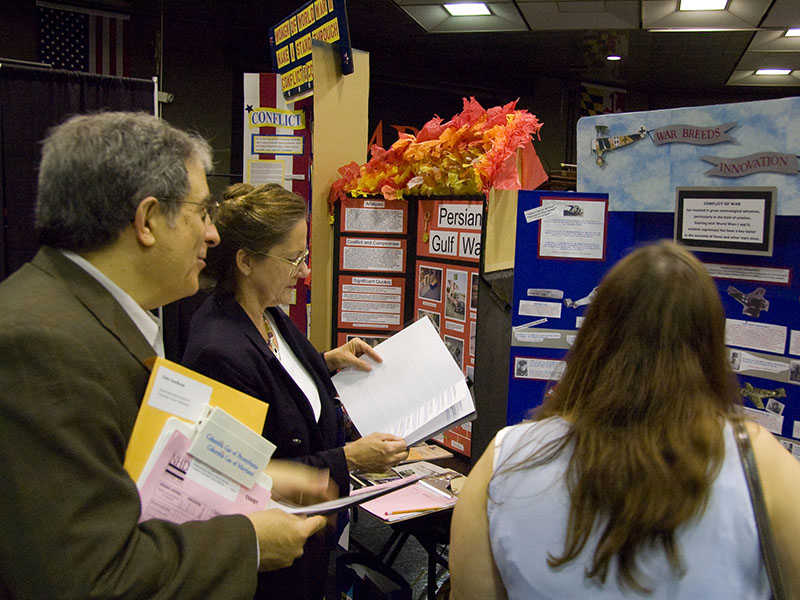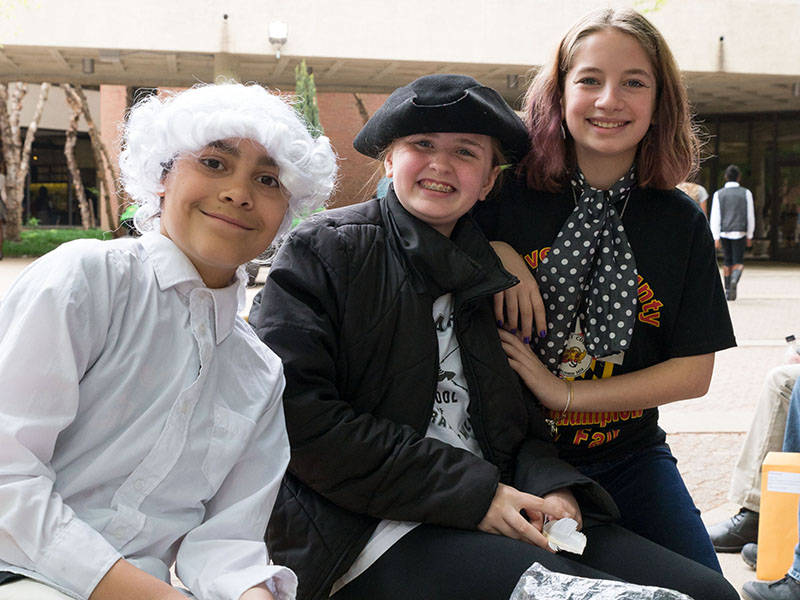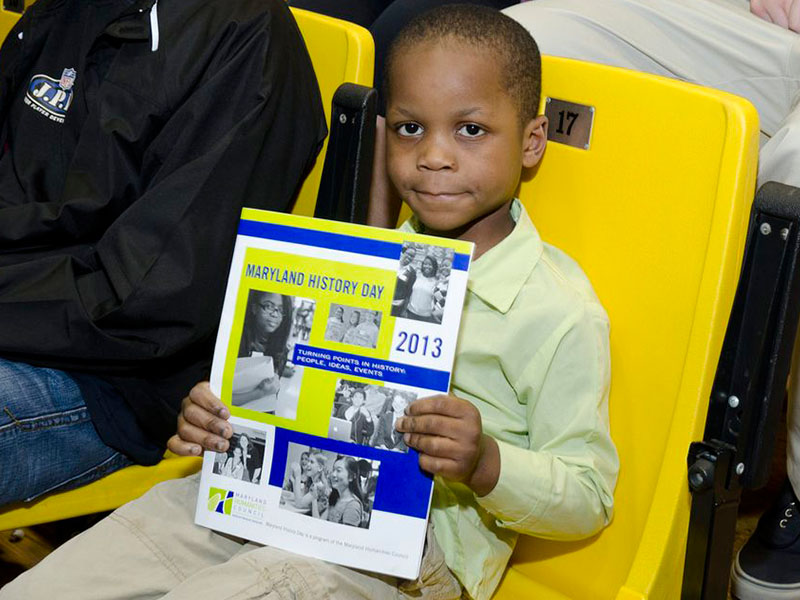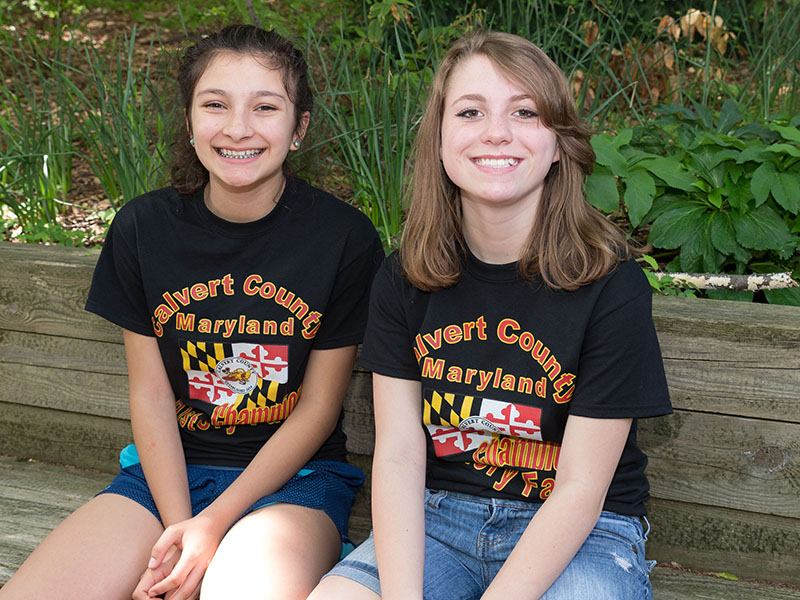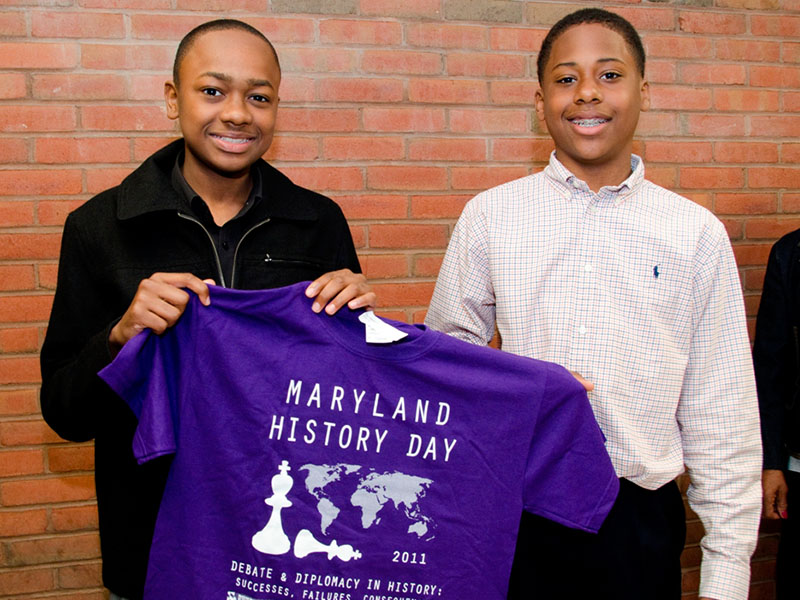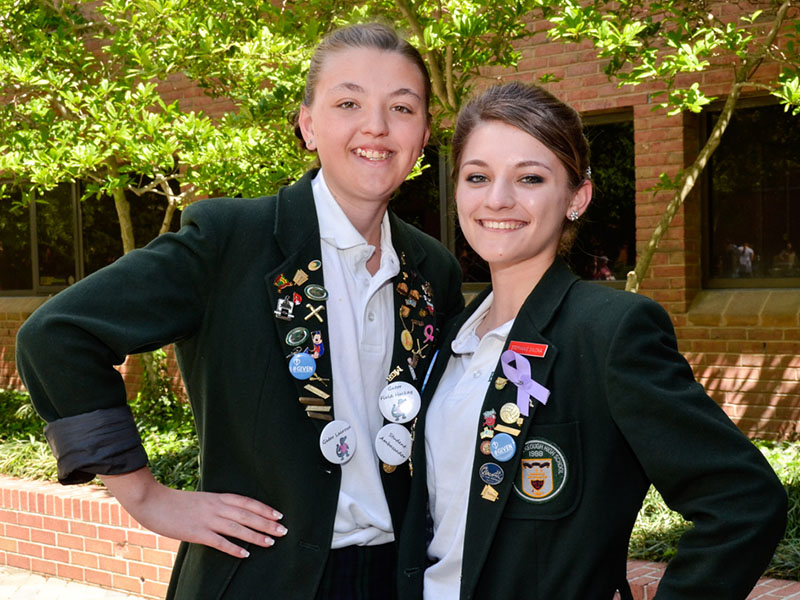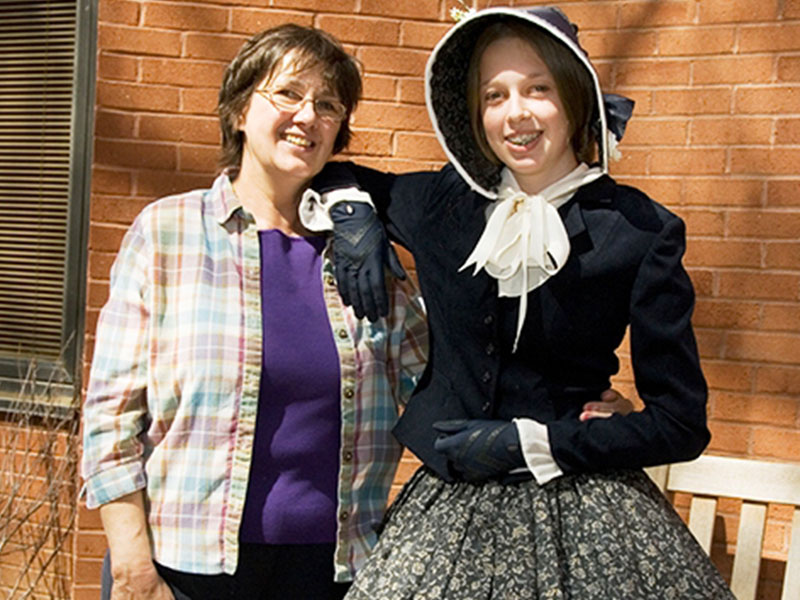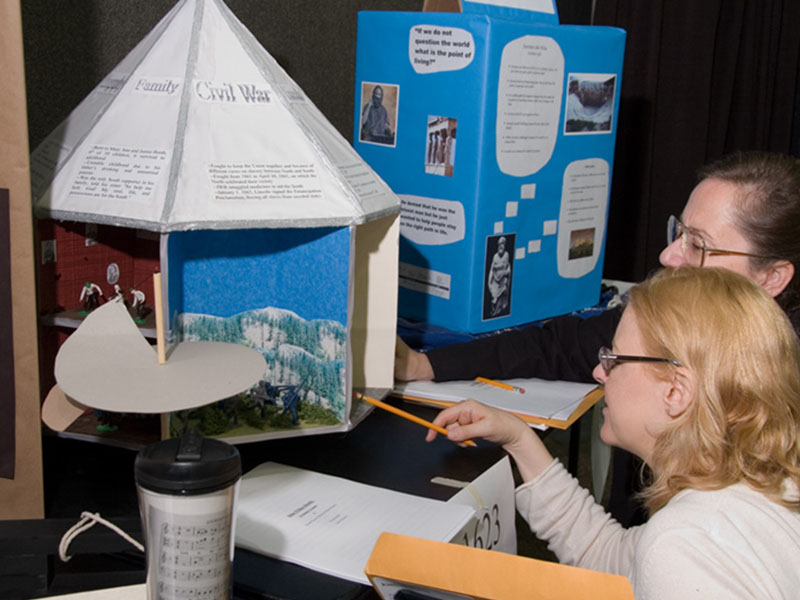Maryland History Day is a program of Maryland Humanities and is an affiliate of National History Day, which has affiliates throughout the nation and the world. In addition to coordinating the state contest, Maryland History Day provides professional development for teachers and works in partnership with district coordinators who operate the program and conduct contests at the local level.
Each year more than 31,000 middle and high school students in classrooms throughout Maryland immerse themselves in in-depth research and create original documentaries, exhibits, performances, research papers, or websites exploring a breadth of historical topics within an annual theme.

- Getting Started
Before selecting your topic and beginning your research, you, your teacher, and your parents should review the contest rule book. The rulebook is your guide to a successful project.
rulebook in English (PDF) Manual De Reglas En EspaÑol (PDF)
You should also determine whether your district is hosting a local contest. Then you and your teacher should contact the district coordinator for registration deadlines and contest details. If your district is not hosting a local contest, please contact Maryland History Day staff to inquire about participation.
Annual Theme
Each year National History Day chooses a different theme to help students focus their research. The 2025 theme is Rights & Responsibilities in History.
- Topic SelectionThe great thing about History Day is that you can choose a topic that interests you! You can research an event or individual in any area of history: science, music, sports, politics – the list goes on and on. Just remember to start broad (the Civil Rights Movement) and then narrow your focus (think Rosa Parks).
- Divisions
History Day divisions are based on school grade:
- Junior Division – grades 6-8
- Senior Division – grades 9-12
Students can compete as individuals or in groups (the paper category is individual-only). Groups may include two to five students, however, teachers can determine the number of students permitted in a group. Group participants do not have to be in the same grade, but they must be in the same division.
Youth Division – grades 4-5:
Youth Division is a scaled-down version of MHD and is designed to introduce students in the 4th and 5th grades to skills-driven history and civics education that students will continue to develop in middle and high school. Projects are completed based on the NHD annual theme and consist of virtual or physical posters, similar to the exhibit category of the Junior/Senior levels of NHD. View our Youth Division Teacher Resource Packet for more information. - Creating Your EntryThere are five different categories to choose from: paper, exhibit, documentary, website, and performance. Choose carefully and make sure you read the category-specific requirements in the rule book. No category is easier than another. Play to your strengths!
If you would like another pair of eyes to look over your project before you submit it to the state contest, take advantage of our electronic review service.
Conducting Interviews
Interviews (also known as oral histories) are not required for NHD. However, if you are interested in conducting an interview, there are some guidelines.
Citations, Annotated Bibliography, and Process Paper
National History Day requires that citations be formatted in Turabian or MLA style. Style guides can be found at your local library or you can consult the Purdue Online Writing Lab (OWL).
Annotated bibliographies not only show the reader the quantity and quality of your sources, the annotations inform the reader how you used your sources. Check out the National History Day Annotated Bibliography Resource Guide! Another great resources is NoodleTools, an online platform that helps students organize resources and create their bibliography.
The process paper is required for all categories. In no more than 500 words, you must answer four questions: how you chose your topic, how you conducted your research, how you selected your category, and how your project relates to the theme.
- Submitting an EntryPre-registration is required to participate in all levels of competition. Registration for the state contest opens in February.
Before you submit an entry, make sure you check that your project meets all the requirements for the competition by using the National History Day Rules Verification Checklist.

